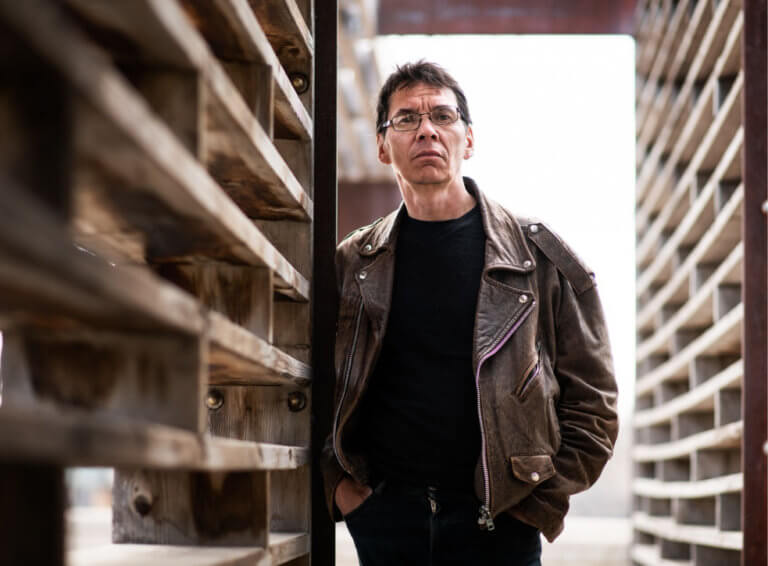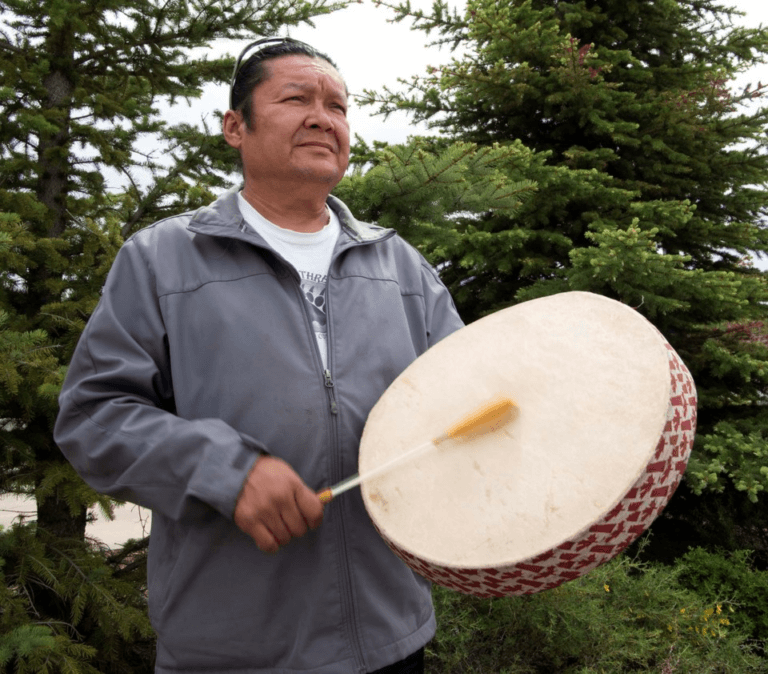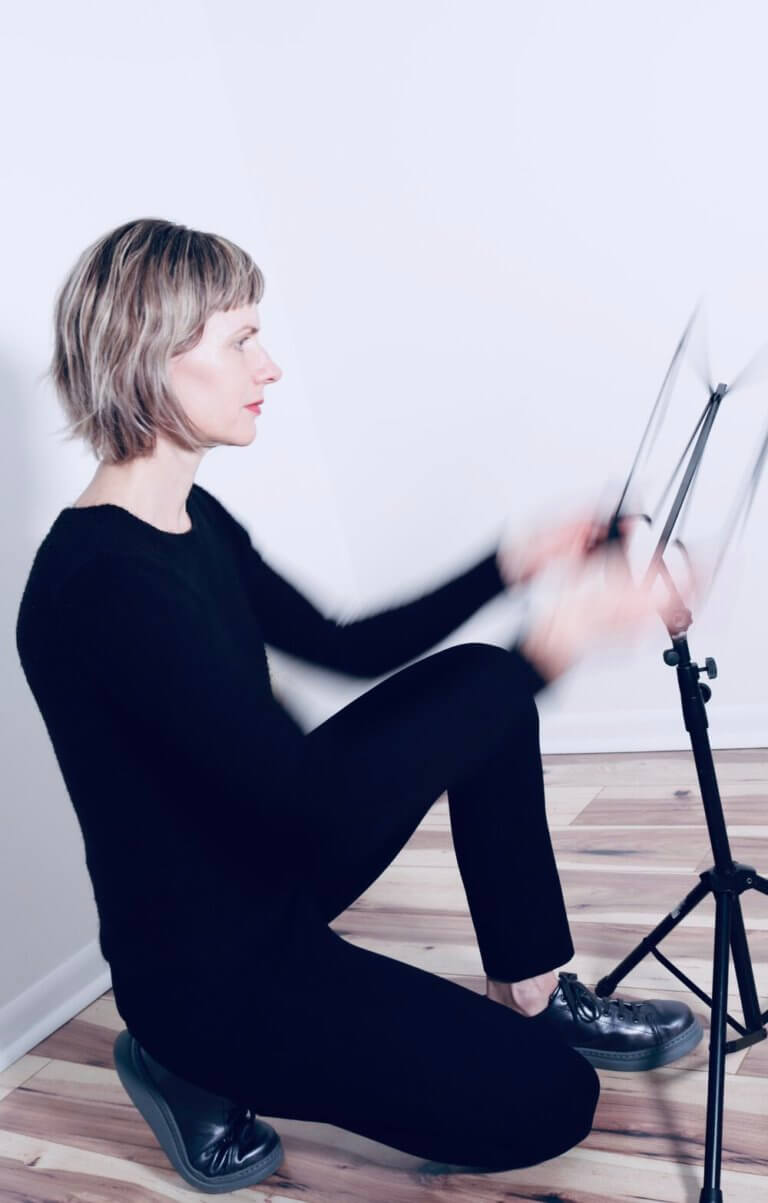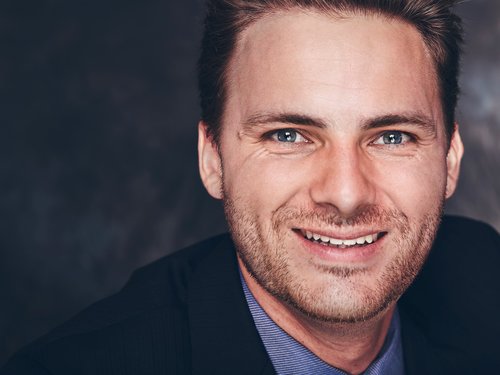Extended Program Notes
pakaskihtawêw – Andrew Balfour
Hear My Prayer (After Purcell) – Dorothy Chang
and the swallow – Caroline Shaw
Extended Artist Bios
Support Chronos Vocal Ensemble
Click here: your donation is appreciated
Program Notes
Vision Chant – Andrew Balfour
After a ceremonial opening, the vision described in the music is somewhat fearsome at its climax. Grandmother (Nokomis) and Grandfather (Mishomis) are called upon. By the conclusion, there is resolution, and perhaps of awakening to a sunrise. (From a conversation with the composer – JVB)
pakaskihtawêw – Andrew Balfour
From the composer:
Nagamo (“Sings” in Cree), is a project that has been on my mind for several years. As a former choir boy brought up in the high Anglican choral tradition, growing up singing the glorious choral music of Tallis, Byrd, Gibbons, and Purcell, and traveling to England several times singing in English Cathedrals made lasting impressions on me. As a 60’s scooper, I was taken away from my Indigenous family when I was a baby, but luckily was raised in a loving and very musical family. I have spent most of my life trying to identify my Indigenous blood, culture and language… Composing and collaboration with Indigenous and non- Indigenous artists has been a beautiful Ispiciwin (journey). Nagamo is a reimagining of history. By taking choral music of the Elizabethan masters and other later choral music, I have reshaped the thoughts behind the texts, by changing the Latin to Ojibway or Cree perspectives. These are not direct translations of the sacred texts, rather a more Indigenous perspective of spirituality, but keeping the beauty of the polyphony intact. In this fragile time in history, in the relationship between settler Canada and the Indigenous people of Turtle Island, I feel Nagamo was a powerful and important step in reconciliation and healing. As well, I’d like to think this is only the first step of many more towards a deeper understanding of Indigenous healing and artistic perspectives on Mother Earth now, and in the future.
Hear My Prayer (After Purcell) – Dorothy Chang (b. 1970)
Dorothy Chang is Professor of Music at the University of British Columbia in Vancouver. Born in Winfield, Illinois, Dorothy began her music studies on piano at age six and began composing at the age of fourteen. Described as “evocative and kaleidoscopic” (Seattle Times), her music often reflects the eclectic mix of musical influences from her youth, ranging from popular and folk music to elements of traditional Chinese music.
Hear My Prayer takes the Purcell setting of the same Psalm text, albeit adding a portion of an additional verse, and taking the original melodic lines of the Purcell as raw material, recombines elements constructing a new melodic and harmonic sound-world in a highly expressive setting. Intake of breath is also used as an expressive device. (JVB)
Exaudi – Jocelyn Morlock (b. 1969)
From the composer:
“Exaudi explores a spectrum of emotional reactions to the words exaudi orationem meam ad te omnis caro veniet. As the music progresses, the cooler, ritualized aspects of the music are transformed into awe and terror, which gradually recede into something more calm. During the conclusion of the piece, which works like an extended coda, the cello solo becomes the main focus of the music. It is echoed and amplified by the sopranos, while the other voices have very simple chorale-like parts.” (Quote found on the website of musica intima, who commissioned the work, which garnered the ensemble and composer both JUNO nominations.)
For a detailed essay by Frank J. Oteri on Jocelyn Morlock’s style and compositions including a description of Exaudi, visit Music on Main. An excerpt:
“The sopranos and altos have still not entered as the cello makes its opening utterances, in its highest register, immediately hovering above the male voices, its trills and other ornaments already clearly setting it apart from the voices’ almost Gregorian phrases which remain focused on that opening line. The altos then join in, but almost imperceptibly so, remaining at the bottom of their register. When the sopranos finally enter, the cello initially drops out, as if admitting that it cannot compete with their tessitura. But this is ultimately a ruse, since at the point when the sopranos reach a climactic high A, the highest note they have sung thus far, the cello returns, soaring above them on an otherworldly high C. The cello gradually descends, first matching the sopranos phrases then ultimately plunging below everyone — even the basses — before returning upwards, but throughout its melody always stands out, calling attention to itself with continual trills as well as triplets which are occasionally articulated forcefully. As if to further confirm that the sopranos have abandoned their traditional foreground role, when Morlock finally sets the remainder of the text of the prayer, she uses only the altos, tenors, and basses.”
Notinikew – Andrew Balfour
Supplied by Dead of Winter (with thanks to Roland Deschambeault):
“Andrew Balfour began programming the Truth and Reconciliation series in 2017, alongside the choral ensemble he co-founded in 1996 called Dead of Winter (Camerata Nova Inc.), cheekily named in reference to the group’s cold but creatively robust native city of Winnipeg, Manitoba. Each project has been curated around a theme, or concept, that resonates with the Canadian Indigenous experience, particularly the mistreatment of Indigenous peoples at the hands of colonial settlers. Taken (2017) is inspired by stories of children taken from their families and sent off to residential boarding schools; Notinikew (2018) is an anti-war choral drama focussing on the stories of Indigenous men forced into military service during WWI. This past May 2022, Balfour and Dead of Winter added to their growing legacy as choral storytellers with performances and recording of the live concert film, Captive.
Notinikew, as with all concerts in the Truth and Reconciliation series, creates contemporary forms of Indigenous-infused music, and tell stories of the history and current realities of Canada’s Indigenous peoples. Under Andrew Balfour’s leadership, Dead of Winter has been exploring and performing this genre for more than 12 years, finding more and more incredibly talented Indigenous artists in which to collaborate. Dead of Winter believes their role is to create a passionate, respectful platform for Truth and Reconciliation, helping to bridge Indigenous and non-Indigenous communities.
Amid a society increasingly disillusioned with its institutions, Balfour proposes that, today, it’s the artists who are responsible for transforming our collective stories…. Indeed, the remarkable malleability, dynamism, and technical gifts mastered in the human voice can convey truths that are at once convincing and impossible, accessible, and ceremonious.”
From the composer’s program notes to the 2018 premiere:
“I wrote this work over the summer while I was in St. John’s Newfoundland, then Toronto, then Temagami in Northern Ontario and, finally, in the Herdsman House Artist Retreat in Neubergthal, south of Winnipeg. It’s been quite a journey – in all senses. My original idea was to write a partly fictional mini opera about the story of the Timber Wolves, but this morphed into a more abstract choral drama… Notinikew is an anti-war piece, an Indigenous identity piece – a tragedy that speaks not just about World War I, but all wars and all indigenous soldiers.
Why did these Indigenous warriors leave our forests and plains to enter a totally foreign military world and end up fighting in the midst of a true hell on earth? It’s very difficult to find good source material. I’ve been studying old pictures and gleaning the odd article, but I’ve also used my imagination to express the experience/feelings of people I’ve never met with as much integrity and respect as I can. I think of the shock, disorientation and horror that would have marked these men for their entire lives. I think also of their re-entry to Canada. As skilled sappers and snipers, they were accepted and respected by their white counterparts. When they returned home, they went back to the degrading label of “Indian”, receiving none of the benefits or recognition of other Canadian soldiers. Plus, they were often ostracized by their own communities because they had taken the side of the government. As the Narrator says near the end of Notinikew: “Where is our place in your history? Where?” Notinikew was difficult to write but also magical and important. It is an honour to try, in my own way, to tell the stories of our people.”
We embrace this opportunity to partner with Indigenous voices in telling stories that are not often put before classical music audiences. We have much to learn, and we are grateful for the support and advice of Ryan Arcand, Margaret Cardinal and many others in this process of bringing this performance to life on Treaty Six territory. We welcome our visiting musicians Leanne Zacharias, Nolan Kehler and Paul Grindlay, each connected in a unique way to the story of this project.
and the swallow – Caroline Shaw (b. 1982)
From Hyperion Records:
The composer Caroline Shaw was the youngest recipient of the Pulitzer Prize for Music for her composition Partita for 8 voices, and is also possibly the only choral composer who can say she has collaborated with Kanye West. Her music is renowned for its use of extended vocal techniques, the most basic of which can be heard in And the swallow, a setting of Psalm 84 which ends with the singers evoking the sound of autumn rains. Shaw spoke of how she was thinking of the Syrian refugee crisis as she composed the work; ‘There’s a yearning for a home that feels very relevant today. The second verse is: “The sparrow found a house and the swallow her nest, where she may place her young” which is just a beautiful image of a bird trying to keep her children safe—people trying to keep their family safe.’
Artist Biographies
Andrew Balfour
Of Cree descent, Andrew Balfour is an innovative composer/conductor/singer/sound designer with a large body of choral, instrumental, electro-acoustic and orchestral works.
Andrew’s works have been performed and/or broadcast locally, nationally and internationally. He has been commissioned by the Winnipeg, Regina and Toronto Symphony Orchestras, Ensemble Caprice, Groundswell, the Winnipeg Jazz Orchestra, the Winnipeg Singers, the Kingston Chamber Choir, Roomful of Teeth, Tafelmusik and Toronto Mendelssohn Choir, among others. Andrew is also the founder and Artistic Director of the innovative vocal group Dead of Winter (formerly Camerata Nova), now in its 25th year of offering a concert series in Winnipeg. With Dead of Winter, Andrew specializes in creating “concept concerts,” many with Indigenous subject matter (Wa Wa Tey Wak [Northern Lights], Medieval Inuit, Fallen). These innovative offerings explore a theme through an eclectic array of music, including new works, arrangements and inter-genre and interdisciplinary collaborations. Andrew has become increasingly passionate about music education and outreach, particularly on northern reserves and inner-city Winnipeg schools where he has worked on behalf of the National Arts Centre, Dead of Winter, the Winnipeg Symphony Orchestra and various Winnipeg school divisions. Andrew was Curator and Composer-in-Residence of the WSO’s inaugural Indigenous Festival. In 2017, he was awarded a Gold Medal by the Senate of Canada for his contribution to Canada’s Indigenous and music communities.
Ryan Arcand
Ryan Arcand is from the Cree community of Goodfish Lake, Alberta (Whitefish Lake First Nation). He first encountered the drum at a powwow at Alexander First Nation around 1978, and trained for many years with old masters such as the Sandy Lake Singers before becoming a full-time drummer/singer in about 1985, and later a champion powwow dancer in 1988-90. He attended Concordia University in Edmonton to study Education, and now splits his time between St. Albert and his land near Onoway, Alberta. As an elder and language-keeper, he has spent many years sharing language, cultural teachings and songs particularly in the City of St Albert and surrounding areas, working with children and adults. Recently, he has been a lead instructor for student drum circles at St. Albert schools. He was recently given the Established Artist Award in the 2022 Mayor’s Celebration of the Arts for the City of St. Albert.
Leanne Zacharias
Leanne Zacharias is a dynamic cellist, educator and interdisciplinary artist known for innovative collaborations with artists of all stripes, across genres and geographies. Her project Music for Spaces re-imagines concerts, public and natural space with sound, and recent work includes an immersive soundscape filling the Canadian Museum for Human Rights as part of the Winnipeg Symphony New Music Festival, CityWide: simultaneous recitals by 50 cellists presented by the International Cello Festival of Canada and Sonus Loci: a sound installation on ice, selected by Winnipeg’s 2013 Warming Huts Art & Architecture competition in collaboration with Stantec Architecture. Sound recordings include of Rand Steiger’s Elusive Peace for drumset and cello with Ben Reimer on New World Records, the Australian Art Orchestra, percussionist Eric Platz, songwriter John K. Samson and The Mountain Goats. She has performed and recorded extensively with longtime ally, songwriter Christine Fellows, at venues across North America and an appearance at the 2013 Venice Biennale in support of artist Shary Boyle, presented by the National Gallery of Canada. She received a ‘Best Performer’ nomination from the Austin Critics’ Circle for Concerto Laguna, in which she played from a rowboat in Travis Weller’s site-specific work presented by the Austin Museum of Art. She has been a featured artist internationally, including as concerto soloist with the Orfix Symphony in Xalapa, Mexico, London’s Open Ears new music festival, and the Fast Forward Austin new music festival. Based in Manitoba, she performs and teaches widely across Canada, Once a contracted member of the Houston Symphony Orchestra, she has performed with the Manitoba Chamber Orchestra, Group of 27 Orchestra in Toronto, Regina Symphony and Winnipeg Symphony Orchestra. She has served as guest adjudicator and clinician with the Con Brio Music Festival in Whistler, Regina Music Festival, Saskatoon Strings, Pembina Valley Strings, Alberta and Saskatchewan Provincial Music Competition and Winnipeg Youth Symphony Orchestra. She spearheaded the Correction Line Ensemble, blending narrative songwriting with contemporary chamber music, and appears with an array of ensembles and venues: the Boundary Ensemble, Groundswell, Emerado, Nicole Lizee’s SaskPower, Toca Loca, Global Cabaret Festival, X-Avant New Music Festival and Ottawa Chamber Music Festival to name a few. She participated in the inaugural Banff Research in Culture workshop (Bric) at the Banff Centre for Arts; On-The-Commons, and presented her work at conferences internationally including Timeforms at McGill University, Project Anywhere at Parsons New School for Art and Design (NYC), the IIAS Art & Science Conference (Baden-Baden, Germany) and Music and the Environment at the University of Waterloo. She has twice been invited to speak in the Winnipeg Art Gallery’s 10x20x20 lecture series, is an ongoing contributor to the interdisciplinary collaborative project Odyssey Works, and has participated in artist residencies at the Banff Centre’s Leighton Artist Colony, Channel Surf (with the Department of Biological Flow), the Churchill Northern Studies Centre and Nes International Residency in Iceland, thanks to grant support from the Manitoba Arts Council.
Associate Professor at the Brandon University School of Music, she teaches across a range of areas including cello, contemporary performance practice, arts administration, chamber music, pedagogy and orchestral performance. She is co-curator of the Wheat City Nuit Blanche and a member of the Institute of Research in Music and Community. She has been on cello faculty of the Domaine Forget International Music Academy in Quebec, Prairie Cello Institute, Cadenza Music Week and Rosamunde Summer Academy. Leanne co-directs two unique summer workshops: A Wild Studio: Excursions in Art, Sound and Performance took place in Grasslands National Park in 2017 and Riding Mountain National Park in 2016/19, in a collaboration with Dr. Megan Smith of the University of Regina Faculty of Media, Art and Performance. A new interdisciplinary performance workshop Hybrid Intensive, co-directed with Abraham Burickson of Odyssey Works, takes place in San Francisco. She has been on the board of the Manitoba Arts Council, and is currently a juror on the distinguished Warming Huts Art and Architecture Competition based in Winnipeg.
Recent appearances include as guest curator of Not Seeing Is A Flower, premiering Nicole Lizee’s new cello concerto presented by the Groundswell new music series at the Winnipeg Art Gallery, Listening In with the Austin New Music Coop, Pressure Waves New Music Workshop, Portal Zero (conceived by architect Rick Derksen) at the WSO New Music Festival and the Agassiz Chamber Music Festival, where Leanne presented Listening Booth: twenty solo recitals for one audience member at a time. She was also a featured artist in Taken, with the Camerata Nova choir, presented by the National Arts Centre in Ottawa, as part of Canada Scene, a massive Canada150 event. She contributed a new score to the Coalescence project of artist Michael Belmore and curator Natalia Lebedinskaia, commissioned as part of LandMarks2017, a signature event of Canada150. Her first solo recording, produced with Paul Aucoin in unique, off-grid sites across rural Ontario, Manitoba and Saskatchewan, was released in June 2021, featuring modern solo works performed on her 1820’s Parisian Couterieux cello.
Leanne obtained her Doctor of Musical Arts at the University of Texas at Austin, a Master of Music at Rice University’s Shepherd School of Music, and a Bachelor of Music from the University of Manitoba. Primary teachers include Desmond Hoebig, Joshua Gindele and Paul Marleyn. She has received grant awards from the Canada Council for Arts, Manitoba Arts Council, Winnipeg Arts Council, the Amati Foundation, among many others.
Nolan Kehler
Tenor Nolan Kehler brings a passion and energy to the stage that is tangible and infectious for an audience. This passion was instilled deep in the Manitoba prairies, bred on a steady diet of Mennonite choral music, James Taylor, and STOMP. How this translates to the classical music world is still being worked out – and maybe it doesn’t have to be.
Nolan completed his master’s degree in vocal performance at the University of Victoria in spring of 2019, where he studied with Benjamin Butterfield. Prior to this, he earned his Bachelor of Music in vocal performance at Canadian Mennonite University in Winnipeg, where he studied with David Klassen. He also went to volleyball camp for a couple of weeks in the summers of his tween years, but his vertical definitely isn’t what it used to be.
A participant in the 2021 Digital Emerging Artists Program with Manitoba Opera, Nolan made company debuts during the pandemic with COSA Canada (Mr. Miggles in Caryl and Ross’ The Shop Girl), Good Mess Opera Theatre (Mosca’s aria from John Musto’s Volpone), and stepping in as Nerone for the University of Manitoba Opera Theatre’s production of L’incoronazione di Poppea. On the concert stage, Nolan’s recent highlights have included soloist debuts with the Regina Symphony Orchestra and the Canzona chamber choir in Handel’s Messiah under the baton of Gordon Gerrard, and the Winnipeg Singers under the direction of Yuri Klaz performing Tchaikovsky’s Liturgy of St. John Chrysostom and Handel’s Coronation Anthems. So much excitement he can barely “Handel” it!
Much of Nolan’s artistic energies in the last number of months have gone to Opera InReach, an educational collective dedicated to instilling a passion for opera engagement and creation among future generations with an eye towards equity, diversity, inclusivity, justice, and accessibility. Nolan serves as the organization’s Provincial Coordinator for their Manitoba chapter, and their work has included a collaboration with Against the Grain Theatre called the Messiah Project to produce a performance of the “Hallelujah” chorus with the Mennonite Collegiate Institute Concert Choir as part of Against the Grain’s award-winning Messiah/Complex.
Other career highlights have included appearances with the Little Opera Company of Winnipeg performing as Larry and Matt in Henry Mollicone’s chamber opera The Face on the Barroom Floor back in the fall of 2019. That year also saw Nolan assume the title role in Handel’s Acis and Galatea with the University of Victoria Voice Ensemble, under the direction of Isaiah Bell and musical leadership of Larry Beckwith. He can guarantee that he will never be in a production with more red plastic balls than that one.
Nolan’s 2019 summer was a full one, spent in development programs with St. Andrews Opera Workshop (Roméo – Roméo et Juliette) and Against the Grain Theatre’s Summer Modern Intensive production, This is Prophetic! (Bégearss – Ghosts of Versailles, Earl of Essex – Gloriana). He also completed a European tour of Spain and Finland as a chorister with the Winnipeg Singers where the choir captured the Grand Prix at the Golden Voices of Barcelona International Vocal Festival. Nolan cannot claim any part in the choir’s victory; they were already obscenely good before he jumped on the bandwagon.
On the concert stage, Nolan appeared this past season with the University of Victoria Orchestra as a soloist for Beethoven’s Choral Fantasy and Bernstein’s Chichester Psalms, as well as the UVic Wind Symphony and Voice Ensembles as the tenor soloist in Kurt Weill’s Berliner Requiem. Nolan also appeared in two performances with the Victoria Baroque Players in their 2017/2018 season as a soloist in the cantatas of J.S. Bach, and as the tenor soloist in the Victoria Philharmonic Choir’s performance of Puccini’s Messa di Gloria. Somewhere in that time, there was a couple of graduating recitals, delightful seniors’ residence gigs… honestly, this whole journey’s been just one incredible blur.
Nolan was privileged to be a part of the workshop process for Maxime Goulet’s new children’s opera, The Flight of the Hummingbird. A co-production between Pacific Opera Victoria and Vancouver Opera, the production is based on the well-known indigenous parable that is rooted in Haida culture. The libretto was written by Barry Gilson and Michael Nicoll Yahgulanaas, who also authored the best-selling Haida-manga book telling the story of the courageous hummingbird Dukdukdiya. Nolan played Taan/Tooth the bear in the production’s second and third workshop sessions in May and November of 2019.
In 2018, Nolan played the titular character in John Davies’ children’s opera, Jack and the Beanstalk with Manitoba UNDERGROUND Opera, which toured across libraries in the Winnipeg Public Library system. In addition, Nolan performed leading roles as a part of Opera NUOVA’s 20th anniversary season in Edmonton, appearing as Jack in Into the Woods and Valère in Kirke Mechem’s Tartuffe.
When he isn’t singing, Nolan still finds himself immersed in the world of music. He moonlights as a drummer in a variety of bands, including with Kenzie Jane and Two Crows for Comfort, playing different styles of music, from R&B to folk to rock. You can also sometimes hear Nolan’s silent contributions (and occasionally not-silent contributions) to CBC Manitoba, where he works as an associate technical producer for their local radio shows, Information Radio, Radio Noon, and Up to Speed, and the Weekend Morning Show, where he curates classical music selections and a weekly segment highlighting the works of female composers.
Nolan enjoys spending quiet evenings on a back deck or else catching the ball game on TV (doesn’t really matter what kind of ball, if any – he will probably have an ill-informed opinion on the subject). You should join him sometime – either on the deck or in the audience.
Paul Grindlay
From early experiences in English church music, through adolescent adventures in nightclub bands, to a full-fledged musical career, I have sought not only to understand and excel, but also to connect with other artists and audience members. These aptitudes have allowed me to prosper as a professional singer, conductor, voice teacher, choral clinician and adjudicator. My musical interests are broad, encompassing many eras, styles and composers, from medieval to modern, from sacred and classical, to pop and jazz. My knowledge of the voice allows me to work with choirs on a level beyond just crafting the music – I can also build and fine-tune the choral instrument. Known for my collaborative style, good ear and infectious passion for music, I engage individuals and
communities in a meaningful, productive and joyful way.
I feel fortunate to have been blessed with a unique bass voice. Perhaps I can take credit for the “ten thousand hours” of practice and
commitment spent getting to know my instrument, but mostly I am indebted to the many amazing teachers, mentors, conductors and colleagues who have inspired and supported me on my musical journey, including my parents and grandparents, my wife, my brothers and so many others.
I have enjoyed a quarter century of professional performances on three continents with such groups as the Vienna Chamber Opera, Opera Atelier, Calgary Opera, American Bach Soloists, Carmel Bach Festival, Tafelmusik, Toronto Consort, Studio de Musique Ancienne de Montreal, Calgary Philharmonic Orchestra, VoiceScapes, Luminous Voices, Pro Coro Canada and many others. When CDs were the go-to music medium, I recorded discs for NAXOS, Toccata Classics and Marquis.
Trained as a singer at the University of British Columbia, Banff Centre, Britten-Pears School, Carmel Bach Festival and Steans Institute, I was awarded the position as Artistic Director of the Calgary Boys’ Choir in January 2004, and continued until 2019. I undertook conducting studies with Jon Washburn, Jean Ashworth Bartle, Henry Leck and Timothy Shantz. Under my direction, the Calgary Boys’ Choir won many awards, was heard nationally on CBC TV and CTV, and undertook tours to the Czech Republic, Austria, France, Spain, England, Arizona and Oregon. I prepared the 2005 Alberta Children’s Honour Choir and the 2006 Alberta Men’s Choir, co-conducted the 2006 Alberta Boys’ Choir and directed the 2007 “Singspiration” youth choir at Concordia University. I also founded SuperSonic Men’s Choir in 2007, directing the ensemble successfully for three seasons, and serving as Artistic Director of the Airdrie Community Choir between 2009 and 2014.
I currently direct the Knox Presbyterian Church Choir (since 2009), teach voice at Mount Royal Conservatory and work as a freelance performer, coach, clinician and adjudicator. I distinguish myself through results, innovative use of verbal, visual and kinesthetic imagery, constructive and affirming methods, and written follow-up reports. Perennially drawn to male voices, I am perhaps best known for my work with boys and adult male singers, but equally capable and comfortable working with girls and women. My clients include the Calgary Philharmonic Chorus, Calgary Bach Festival Society, Edmonton Youth Choir, Grande Prairie Boys’ Choir, Western Hospitality Singers, Calgary Multicultural Choir, and the high school choirs at Dr. E.P. Scarlett, John G. Diefenbaker, William Aberhart, Forest Lawn and Western Canada High Schools.
I have also served two terms on the board of directors for the Alberta Choral Federation (now “Choir Alberta”).





